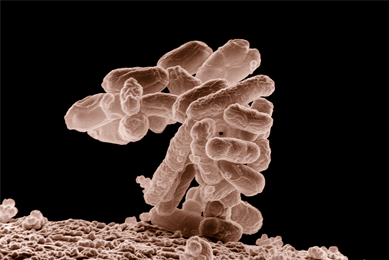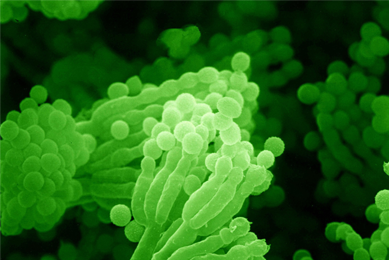High-Throughput Phenotypic Screening for Characterizing WHO-Listed Fungal Pathogens and Monitoring Phenotypic Drift in Bacteria
ASM Microbe 2024
Atlanta, Georgia, United States
June 14, 2024Abstract
Understanding the phenotypic profile of a given microbe is key to contextualizing the results of any study. There are numerous methods used for characterizing microbes, from genomic to proteomic to phenotypic. While genomic and proteomic techniques can yield global results, it is often difficult to isolate an explicit connection between genotype and phenotype. In contrast, most phenotypic characterization methods assay discrete traits and allow specific annotation of those traits to specific assay conditions. Here, we generated baseline phenotypic profiles for eleven fungal pathogens recognized by the WHO to be of special concern in the global health community: Aspergillus fumigatus, Talaromyces marneffei, Scedosporium prolificans, Candida spp. (albicans, auris, glabrata, parapsilosis, tropicalis, and krusei), and Cryptococcus spp. (neoformans and gattii). Each fungal strain was grown under nearly 2,000 different conditions using Biolog’s Phenotype MicroArray (PM) plates that assay for carbon, nitrogen, sulfur, and phosphate utilization; pH and osmotic stress resistance; and drug tolerance. The fungi were simultaneously grown in a set of 96-well plates where each well contained a unique substrate or condition. During incubation, cell density was kinetically measured by the Odin instrument to generate a growth curve for each well. Using this method, we were able to detect a variety of phenotypes—both unique and shared among the pathogens—that can be used to better understand their metabolism. While baseline characterization is important, it is equally critical to monitor strains to ensure consistent phenotypic output. To investigate the occurrence of phenotypic drift in laboratory and production strains, we generated the same PM profile for bacteria: Escherichia coli, Streptococcus thermophilus, and Lactobacillus casei. Each strain was passaged every 24 hours for 60+ days, and every 20th generation was profiled using the PM plate method. Through this methodology, we were able to simulate years of passaging strains while monitoring for and detecting phenotypic drift. Once drift was detected, the specific generation was then isolated and sequenced to identify potential causative mutations. Overall, this study showed that high-throughput phenotypic screening can be a useful tool for both characterizing strains of interest and monitoring lab and production strains for phenotypic stability.
Download the poster to learn more about high-throughput phenotypic screening.
DownloadPresenters
Shahin Ali, PhD
Senior Scientist, Collections, ATCC
Dr. Ali is a Senior Scientist at ATCC with over 13 years of experience in the field of fungal biology and plant-pathogen interactions. Before joining ATCC, Dr. Ali worked for the USDA-ARS at Beltsville Agricultural Research Center, Maryland. He obtained his PhD from University College Dublin, Ireland.
Max Cravener, PhD
Field Applications Scientist - West, Biolog, Inc.
Dr. Cravener earned a PhD in 2022 from University of Georgia in Microbiology with a focus on fungal genetics. Dr. Cravener worked with Candida albicans studying natural variation among clinical isolates and how gene expression and regulatory differences can impact their ability to form biofilms on implanted medical devices.
Explore our featured products

Bacteriology and Archaea
ATCC offers a variety of bacterial and archaeal strains with applications in a variety of research and industrial applications. Our growing portfolio includes antimicrobial-resistant strains, quality control organisms for commercial identification systems, a wide selection of extremophile strains, and genomic and synthetic DNA.
More
Mycology
Mycology strains are vital for advances in biomedical, pharmaceutical, and commercial research, which is why ATCC offers a vast collection of antimicrobial-resistant fungal strains, quality control organisms, and genomic fungal DNA.
More
Drug-resistant Fungi
ATCC provides authenticated fungal strains for the development, verification, and evaluation of novel antifungal drugs.
More